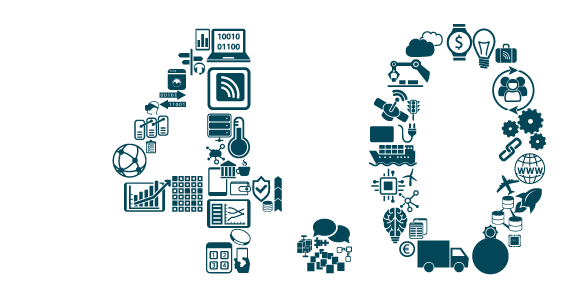It has been about 6 years since I caught the entrepreneurial bug. How time flies.
Since then, it has been an ongoing train ride/ wreck that never stops. Admittedly, I’ve made some stupid mistakes. But, over the course of tine, I’ve learned to be a little wiser in business. To add to that, I’ve learned how to cope with the ongoing uncertainty, stress, and anxiety much better.
In short, what changed the most in the past 6 years is that I’ve gained more experience in how to do business in a better way and how to better manage myself in all of the madness.
Of course, I’m far from being the perfect entrepreneur, nor am I near anywhere significant in relative measures of business success compared to others. But, compared to who I was 6 years ago, I believe I’ve made progress which I find to be personally significant.
In this process, I felt that some parts of me permanently changed.
A Pipe That Doesn’t Stop Leaking
There have been a few noticeable changes that happened to me through the course of the past few years.
Firstly, I have come to a serene acceptance that I’ll never be able to have the right balance in addressing the ongoing firefighting, stress, anxiety, and limited (physical, psychological, and financial) resources at any given time.
Addressing my physical and psychological needs would be at the expense of personal or company’s finances, while addressing an (often) urgent business need will be at the expense of increased stress and anxiety. It’s like having several leaks along a pipe, with only two hands to temporarily block some of the leaks at a time. Water is still bursting out of the pipe somewhere.
I believe that this will be an ongoing reality for the rest of my business career.
Being Unidimensional: A Necessity
As a follow-up to the first point, in order to be more efficient with said resources, much effort has been invested into putting myself in a position to do what I like. To me, it is an inevitable fact that a person must enjoy (either through learning or from an innate tendency) doing business in order for it to be a sustainable means of an income.
I’ve found that enjoying it helps with putting in the necessary work to grow the business. Most times, other rewards, such as financial growth, social recognition, comfort, or whatever misconceptions people have about running a business do not actually materialize at least in the first few years (or even at all). It is a slow and demoralizing grind.
Having an enjoyment for business also helps with the important need to persevere through the inevitable failure(s). If there is no enjoyment, then one risks giving up too soon.
As a result, I’ve become more uni-dimensional in my character. The business that I do takes up almost all (if not all) of my resources, time, and effort. Yes, I believe I’ve become a more well-rounded person by picking up a variety of skills and knowledge, but most of it is to further advance the business or to enhance my competence with the business.
I don’t have a quirk about myself that is not part of my professional identity. I don’t have a separate weekend life. My identity is very much aligned with what I do with my business.
Some may call it “Ikigai”, some may call it “flow”, some may call it an obsession or not having a life. People who are not involved in business or have an interest in the economy (and in my case, psychology) may find me to be a bore.
Is it right, is it wrong? I don’t have the answer to a correct way of life. But I do know that it is necessary (for me).

A Mind That Is Always On
Lastly, being efficient with my resources also means developing a mindset that caters to the business. I remember a time in my life when I was able to “switch off”. This was especially true during my formative years into the practice of mindfulness.
Through the past few years, I have come to develop a mind that is constantly problem-solving, ideating, or strategizing by default.
I do appreciate that I get to work out business problems when I’m doing the most mundane of tasks. I find that I also do it as I sleep. While efficient in utilizing time and very useful in my professional/ business development, it isn’t the best mind to have when wanting to unwind.
The Impact of the Pandemic
Now, it may be too simplistic to simply assign the full blame of my psychopathology on the pandemic. There’s probably more that I can do for my mental health during these challenging times.
But, I don’t appreciate that the pandemic has added significant and uncontrollable stressors on top of the undercurrent of uncertainty and anxiety that I’m already tolerating without one.
As it is, running a business comes with great risk, uncertainty and a whole lot of problems. Adding a global pandemic into the mix magnifies that effect. I’m honestly not sure how other entrepreneurs are coping with it. My guess is most are still too busy firefighting and sacrificing their mental health in the process (refer to leaking pipe analogy above).
Financial uncertainties aside, protective mechanisms are also taken away. This can include the ability to have more hands-on management of the business (not possible if I’m “working from home” or not able to meet staff), lack of social support (no networking with others from the same circle), lack of physical exercise or ability to be in a different environment (to get my mind off things), and the list goes on.
These things used to keep my gears running smoothly. As my work is screen time heavy, pandemic-friendly options for support simply adds to my screen time, which produces a negative (or net, at best) effect on my mental health.
For now, I’m glad that I can have my own meals outside and work out (double masked). These privileges might be taken away again a couple months down the road. I should load up on these experiences to fill up at least a little of my already empty batteries.
What’s in the Future?
As an overall, I have an optimistic view of the future. Despite dwindling mental health, I think I should have enough in the tank to see this through without completely falling apart. I’m thankful that I have protective nets which are supporting me (SES, positive family relationships included).
In the grand scheme of things, this pandemic is probably but a drop of water in the ocean.
As I’m reading back what I’ve written in this post, the main take away for me would be that people make sacrifices and are molded more specifically into a character because of what they want out of life.
For me, I changed because I want to enjoy the business that I do, with it potentially accelerating (relative to a conventional career path) my personal potential, be it in net worth, professional competence, or contribution to society.
Granted, I won’t be able to enjoy the many things that come from a different way of life. And the same goes for everyone else too. We make our choices and pick our battles.
I don’t think there’s any right way to live a life. What helps, though, is that the choices that are being made are ones which we are fully intentional towards.








